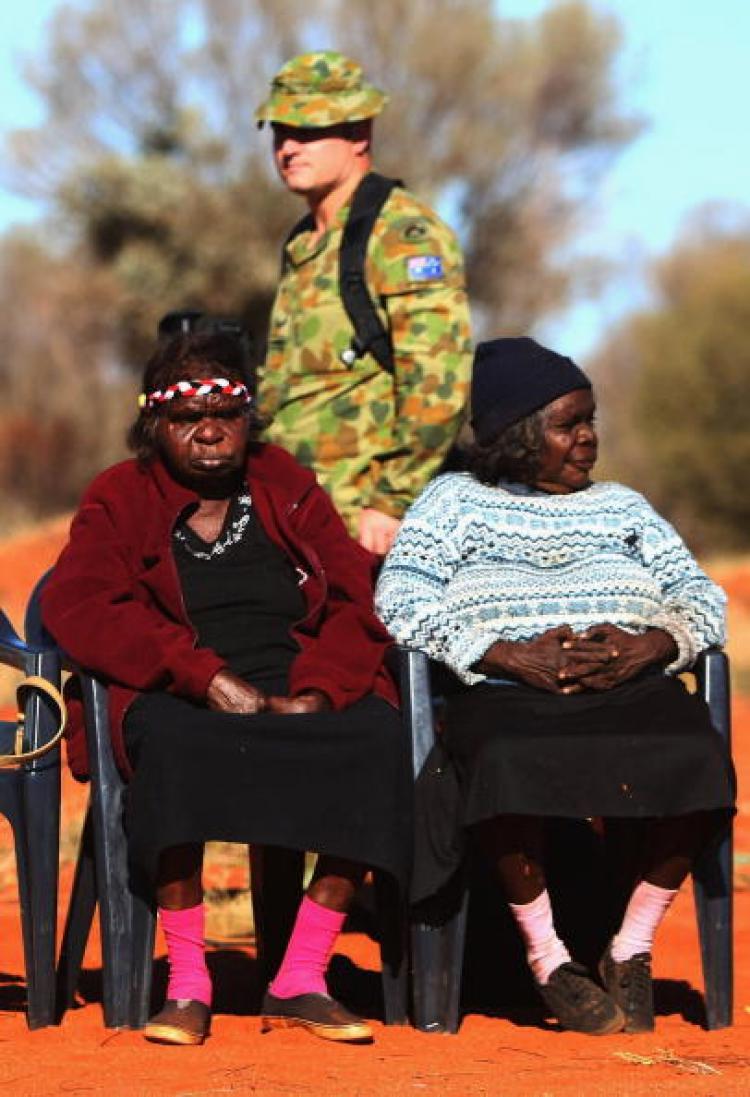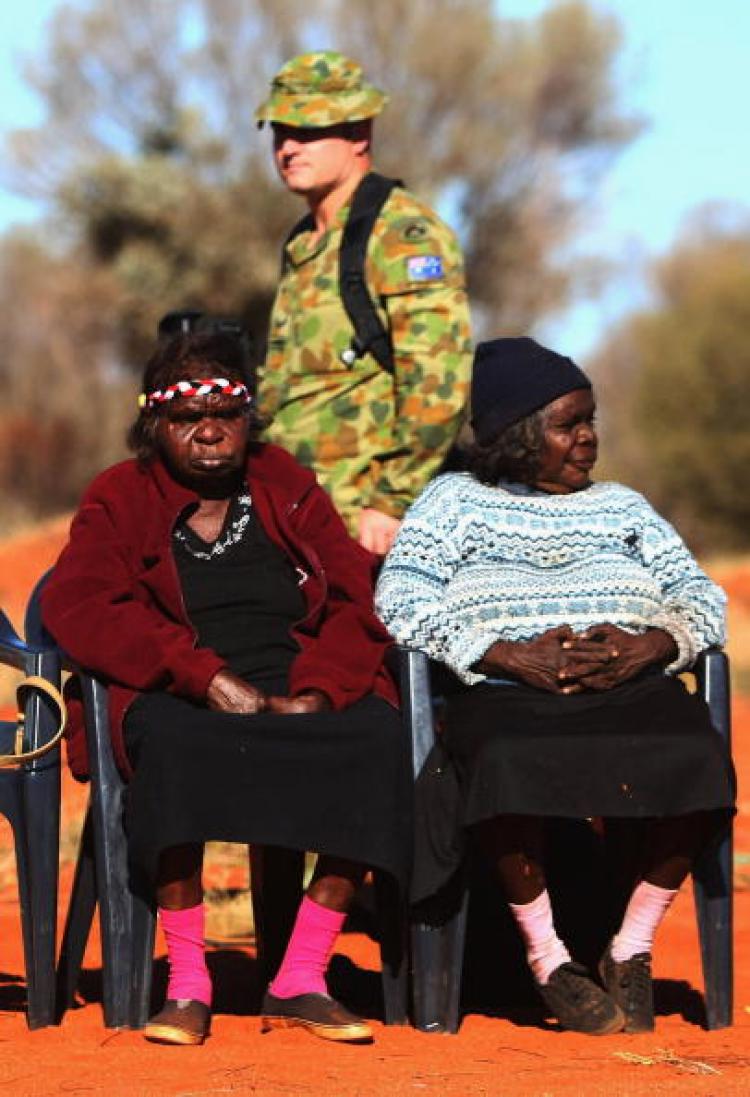The Federal Government has restated its support for the Northern Territory intervention, reigniting the debate about how to address problems in remote Indigenous communities.
Former governor of Western Australia General John Sanderson says the intervention (now called the Northern Territory Emergency Response or NTER) should be removed.
It has disempowered Indigenous people, he said, forcing them “to come cap in hand to us and beg us for money”.
“We’ve stuck the knife so deep into the heart of those communities, it’s going to take us a long, long time to climb out of it,” General Sanderson told The Australian.
More consultation with local communities is one of three key recommendations put forward by the government’s independent review on the NTER, released in early October.
The 12-month review, chaired by former director of the Kimberly Lands Council Peter Yu, also recommended that “the unacceptably high level of disadvantage and social dislocation” seen in NT Indigenous communities be addressed as a matter of urgency and that the government respect human rights obligations and conform to the Racial Discrimination Act (RDA)1975.
Jenny Macklin, Federal Minister for Indigenous Affairs, said the Federal Government would continue to support key elements of the intervention, citing one of the recommendations as the reason.
“Well, we’re continuing the intervention because of the very acute levels of disadvantage in Indigenous communities in the Northern Territory,” she told the ABC.
As to the other recommendations, the Federal Government has said there was more work to be done before the removal of the RDA. Core elements of the intervention, like compulsory income management and five-year leases, would also remain, although they would be modified.
“These are difficult decisions and I certainly understand that a lot of people have very strong views about it”, Ms Macklin said, adding that implementing compulsory income management had resulted in a rise in sales of fruit and vegetables, and a drop in sales of cigarettes.
“Many people really are desperate for the compulsory income management to stay because they can see that it really has been of significant benefit, particularly to women and children,” she said.
Aboriginal and Torres Strait Islander Social Justice Commissioner Tom Calma, however, is concerned that continuation of the intervention in its present form will further disempower Indigenous people. He has urged the Federal Government to remove the RDA and abolish compulsory income management..
“Efforts to improve safety for families and children in remote Indigenous communities must be done in collaboration with Aboriginal people and in a manner that treats Aboriginal people with dignity and respect – it really is that simple,” he said.
The Northern Territory intervention was introduced by the Howard Government in July last year in response to a report that claimed child abuse in Aboriginal communities was widespread. The intervention included the introduction of Federal Police and Army personnel into the communities, as well as health checks for children.
Shadow Indigenous affairs spokesman Tony Abbott believes the intervention should remain in full force and any changes to compulsory income management would be unlikely to receive Opposition support.
The system protected families from “humbugging”, he said, and should be extended to all welfare-dependent families.
Humbugging is the demanding of money by extended family, sometimes through violence.
Jenny Macklin said the Government was committed to compulsory income management “as a tool to reduce alcohol-related violence, protect children, guard against humbugging and promote personal responsibility”.
However, it would be modified to ensure conformity with the Racial Discrimination Act “ and will not involve suspension of the Act”, she said.






